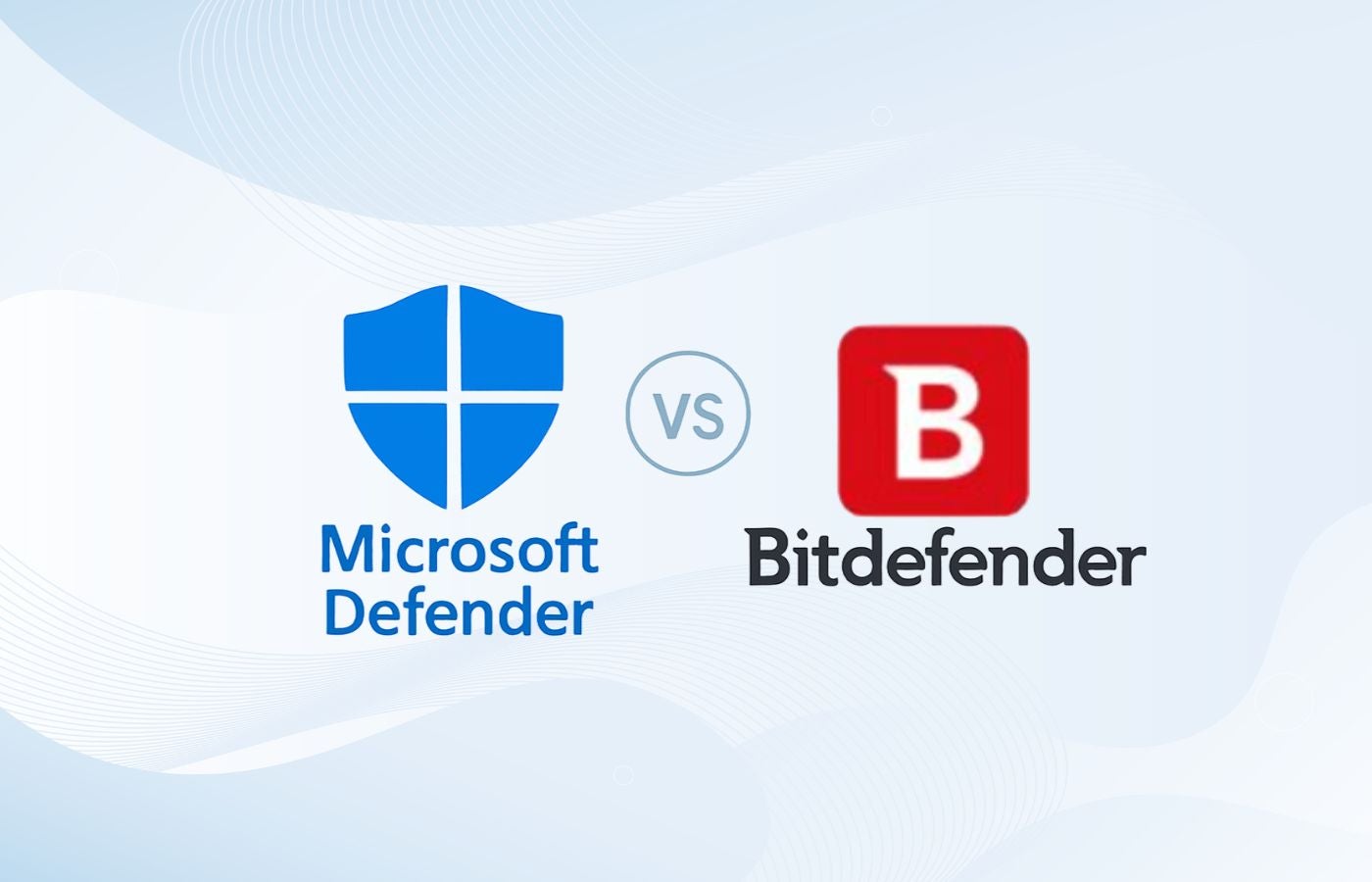DDoS attacks are rising. As a result, organizations are pressured to stay online and operational as these threats increase in frequency and sophistication.
Many are turning to real-time protection services that detect and neutralize attacks before they cause damage to counter the disruption. In this guide, we’ll discuss the top DDoS protection providers, their offerings, and how to choose the right one for your organization—whether you’re in gaming, e-commerce, manufacturing, or energy.
- Cloudflare: Best overall DDoS protection service provider
- Radware: Best for tailored, scalable DDoS protection solutions
- Imperva: Best for instant, high-capacity DDoS mitigation
- Amazon Web Services: Best for scalable protection on AWS infrastructure
- GCore: Best for real-time bot protection, edge infrastructure
- Akamai: Best for defense against application threats
- Ribbon: Best for advanced DDoS detection and policing
- Vercara: Best for wide-range defense across infrastructures
- NetScout: Best for hybrid, adaptable DDoS solutions
Top DDoS Protection Service Providers Comparison
Most of the vendors listed here scored well in the Forrester DDoS Wave. In addition to handling traditional DDoS attacks, they incorporate cloud, mobile and IoT features, as well as these key features and services:
| Traffic Handling | Configuration | Scalable | Pricing | G2 rating (out of 5) | |
|---|---|---|---|---|---|
| Cloudflare | High | Easy | Yes | Free version available; Pro plan starts at $20/month. | 4.5 |
| Radware | High | Moderately complex | Yes | Hourly rates start as low as $1.62/hour; monthly subscriptions start around $638/month | 4.6 |
| Imperva | High | Moderately complex | Yes | Pricing available upon contacting Imperva sales. | 4.4 |
| AWS | High | Moderately complex | Yes | $3,025 per organization per month. | 4.1 |
| GCore | Moderate | Moderately complex | Yes | Free tier available; Basic plan starts at $3.9/Mbps | 4.1 |
| Akamai | High | Complex | Yes | Free trial available; pricing available upon contacting Akamai sales. | 4.2 |
| Ribbon | High | Complex | Yes | Pricing available upon contacting Ribbon sales. | 4.2 |
| Vercara | Moderate | Complex | Yes | Pricing available upon contacting Vercara sales. | N/A |
| Netscout | High | Complex | Yes | Pricing available upon contacting Netscout sales. | 4.3 |

Cloudflare
Best overall
Cloudflare’s cloud-based DDoS protection system can deal with layer 7 attacks, layer 3 attacks, and layer 4 attacks. Instead of using dedicated anti-DDoS hardware, every machine in its global network participates in DDoS mitigation. Its DDoS protection secures websites, applications, and entire networks while ensuring that the performance of legitimate traffic is not compromised.
For more information, read the full Cloudflare review.

Radware
Best for tailored, scalable DDoS protection solutions
Radware offers DDoS protection across any infrastructure implementation for the public cloud, the enterprise, and specifically for service providers. It secures the data center, private cloud, public cloud, and 5G infrastructure using a solution that is agnostic to the environment and was designed to help service providers protect large-scale networks.
For more information, read the full Radware review.

Imperva
Best for instant, high-capacity DDoS mitigation
Imperva DDoS Protection can deal with any asset with a three-second mitigation time for any attack. Onboarding is said to be easy and fast, while operation is simplified with out-of-the-box policies and self-adaptive tuning capabilities. Imperva Attack Analytics augments visibility and reporting.
This approach provides a holistic view of all attack types and layers, and correlates these to accelerate the investigation process while reducing alert fatigue. Imperva works across various industries, including e-commerce, energy, financial services, gaming, healthcare, manufacturing, and technology.
For more information, read the full Imperva review.

Amazon Web Services
Best for scalable protection on AWS infrastructure
AWS Shield is a managed DDoS protection service that safeguards applications running on AWS. It defends against the most common, frequently occurring network and transport layer attacks that target websites or applications. It provides always-on detection and automatic inline mitigations that minimize application downtime and latency.

GCore
Best for real-time bot protection, edge infrastructure
GCore provides web application and server-level DDoS protection services with an edge cloud infrastructure. These services can protect against up to three layers of attack, most commonly the network (L3) and transport (L4) layers. It also offers real-time bot protection and a next-generation firewall (NGFW). Interested buyers can also contact GCore to develop custom features suited to their business’s needs.

Akamai
Best for defense against application threats
Akamai offers three purpose-built cloud solutions to provide end-to-end DDoS defense for organizations. For the highest quality of DDoS mitigation to protect applications, data centers, and internet-facing infrastructure (public or private), a combination of Prolexic, Edge DNS, and App & API Protector would be recommended.
Effective mitigation techniques are available for all classes of application-layer DDoS/DoS attacks. These include those designed to exhaust resources, exploit vulnerabilities that can cause availability issues (such as buffer overflows), exploit flaws in application business logic, and compromise API infrastructure.
For more information, read the full Akamai review.

Ribbon
Best for advanced DDoS detection and policing
Ribbon offers a suite of core session border controllers (SBCs) with advanced DDoS detection and mitigation capabilities. It provides DDoS detection and mitigation through configuration and dynamic adaptation at scale, with little to no impact on traffic throughput or packet processing.

Vercara
Best for wide-range defense across infrastructures
Vercara (formerly Neustar) UltraDDoS Protect offers 12+ Tbps of DDoS mitigation and a global dedicated data scrubbing network to help maintain an online presence, reduce the threat of theft, and protect the bottom line. Vercara offers on-premises hardware to stop smaller attacks instantly and the UltraDDos Protect cloud for when attack volume and complexity explode.

Netscout
Best for hybrid, adaptable DDoS solutions
To stop sophisticated DDoS attacks, NetScout offers a portfolio of DDoS attack protection products and services that enable organizations to customize a solution, either hosted in the cloud or on premises.
Hybrid stateless, on-premises, and cloud protection can stop today’s high-volume attacks, which often exceed 600GB/sec, as well as stealthy application-layer attacks against stateful infrastructure devices, such as firewalls, IPSs, and application delivery controllers (ADCs).
Key features of DDoS protection services
Choosing the best DDoS protection solution requires a solid understanding of the features that enable an effective defense against cyberattacks. A complete DDoS solution should have these key features for quickly detecting, mitigating, and responding to attacks while maintaining uninterrupted service:
- Traffic handling and filtering: Effectively distinguishes genuine traffic from hostile assaults, ensuring continuous access to networks or services while maintaining performance.
- Real-time DDoS attack mitigation: This technology identifies and stops ongoing DDoS threats as they occur, preventing service outages and limiting potential harm.
- Anomaly detection: Recognizes unusual patterns in network traffic, detecting possible dangers early and allowing for prompt preventive action.
- Scalability: Adapts to changing traffic levels, particularly during attack peaks, to provide constant service availability and performance.
- Integrations: Works in coordination with other security products or platforms to improve overall security by merging defensive mechanisms and exchanging threat intelligence.
In addition to these core features, a reliable DDoS protection solution should include a service-level agreement with guaranteed mitigation time, consistent application uptime, simple onboarding, and integrations with Terraform and APIs. Due to rising VoIP-based DDoS threats, Verifying VoIP defense inclusion is crucial for comprehensive protection.
How to choose the best DDoS protection service for your business
Choosing the best DDoS protection service depends on various factors tailored to the specific needs of a business:
For large businesses
- Scalability: Look for solutions that can manage large traffic levels and expand with your organization.
- Comprehensive security: Look for solutions that provide multi-layered security against many attack types and have strong mitigation capabilities.
- Customization and adaptability: It is critical to have solutions tailored to unique infrastructure and business requirements.
For medium-sized businesses:
- Cost-efficiency: Choose solutions that balance price and features, delivering critical protection without going overboard.
- Ease of use: Look for user-friendly interfaces and manageable setups that don’t require a high technical knowledge level.
- Accessible customer support: Choose providers who offer reliable and accessible customer support through different platforms.
For small businesses:
- Affordability: Prioritize options that provide good protection while remaining within budgetary restrictions.
- Simplicity: Look for simple solutions to set up and administer without the need for specialized IT staff.
- Reliability: Check for consistent service availability and crucial defenses against typical threats.
When picking a DDoS protection solution, it is critical to consider the organization’s unique demands, budget, infrastructure, and development potential. Make informed choices by testing trial versions, speaking with experts, and examining consumer feedback.
How we evaluated the best DDoS protection services
In our evaluation of the best DDoS protection vendors, we adopted a systematic approach leveraging five weighted categories, each comprising crucial DDoS capabilities as subcriteria:
Cost – 20%
This criterion examines free trial availability, price structure clarity, and the flexibility of customisable product packages, which are critical for enterprises attempting to balance security demands with financial constraints.
Core Features – 30%
This criterion examines essential functions such as traffic handling, reporting and analytics, real-time mitigation, anomaly detection, scalability, integrations, and automated response, which form the foundation of a sound DDoS defense system. These key factors jointly determine the solution’s effectiveness in preventing attacks and protecting digital assets.
Non-core Features – 15%
Although not at the forefront, these supplemental features, such as security enhancements, anonymity protection, and customization choices, greatly contribute to a solution’s adaptability and additional security layers.
Customer Support – 10%
The availability and effectiveness of technical help via various channels, such as phone, email, live chat, knowledge base, and self-service support, are critical factors to consider. This criterion assesses support accessibility and responsiveness, vital for quick issue resolution and system maintenance.
Ease of Use and Configuration – 15%
User experience, as represented by UI design, configuration flexibility, and the comprehensiveness of guided setup and onboarding resources, is critical in ensuring seamless deployment, effective utilization, and rapid adaptation of the DDoS protection solution within an organization’s infrastructure.
Frequently Asked Questions (FAQs)
Bottom line: Protect your business against DDoS attacks
A DDoS attack might render your servers inoperable. While larger organizations may have specialized IT personnel, smaller businesses face a greater risk from these threats.
DDoS security solutions monitor traffic influxes and restrict traffic flow to avoid overloading servers and limit the damage caused by an attack. Businesses of all sizes can defend their digital infrastructure by investing in DDoS protection services to ensure uninterrupted online services, consequently preserving consumer trust and avoiding possible losses in case of cyberattacks.




